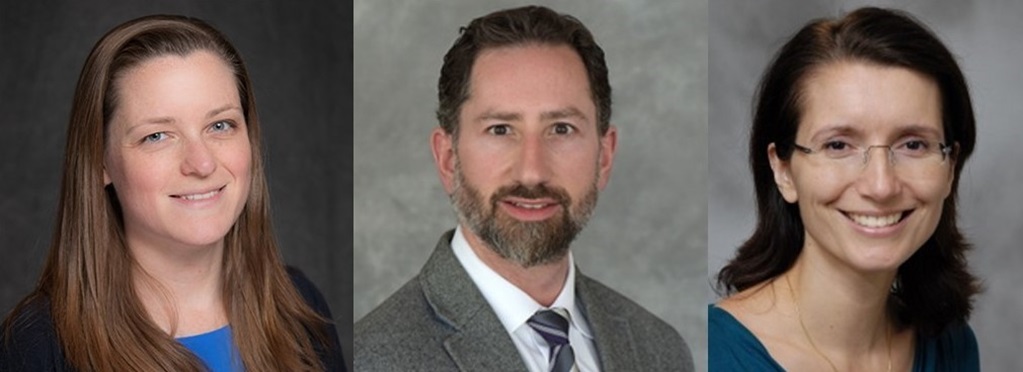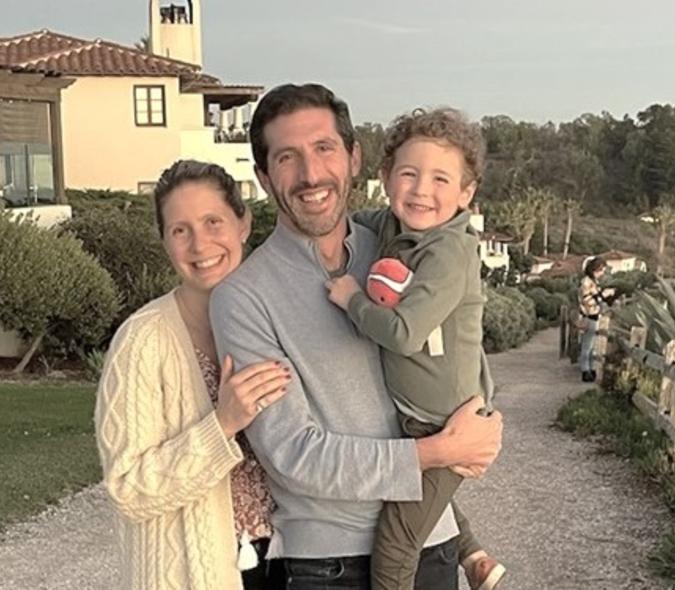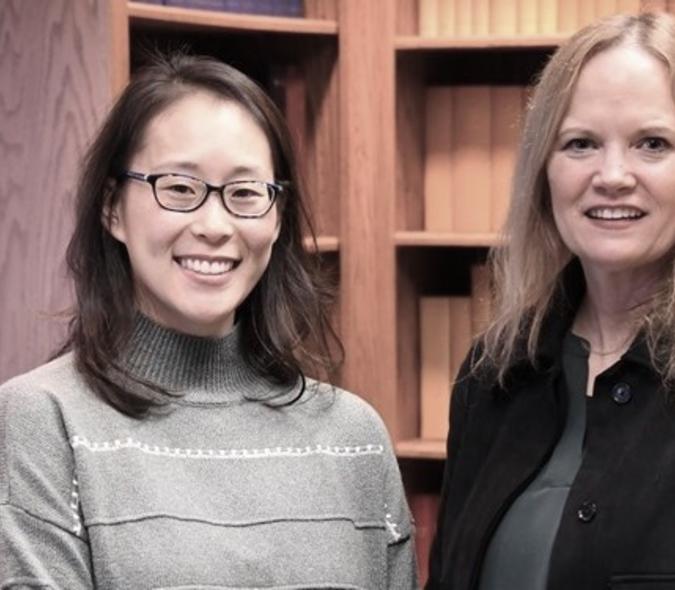
Faculty member takes on new U of M leadership role
On July 1, 2023, Associate Professor Sasha Zagoloff officially became one of three directors of the Rothenberger Leadership Academy. She is joined by David Satin, MD, from Family Medicine and Community Health, and Ezgi Tiryaki, MD, of Neurology.
Zagoloff was part of the 2017 to 2020 Academy cohort and the only psychologist chosen to participate in the program. “It was really transformative for me,” she said. “I enjoyed forming relationships with people in my cohort and watching and learning from them.” Another benefit of participating for Zagoloff was gaining confidence in herself as a leader. “It helped me develop my own concept of leadership and how I want to lead,” she said.

As the three co-directors (pictured above, from left: Drs. Sasha Zagoloff, David Satin, and Ezgi Tiryaki) move into this academic year, they are focusing on alumni engagement and evaluating the program and its outcomes. “We will start our new cohort in the fall of 2024,” said Zagoloff. “It’s a multi-year program with approximately 35 faculty participants. We are responsible for developing curriculum, facilitating small groups, recruiting participants, and securing financing to keep the program running.”
For the upcoming cohort, the leadership team is limiting themselves to Medical School faculty on the Twin Cities campus. “In the cohort after that, we intend recruit from a broader pool of candidates,” said Zagoloff.
Who is eligible to participate?
According to Zagoloff, you need to have been at the U of M long enough to have demonstrated interest in and an ability to continue your leadership training. “We want individuals who have enough time remaining in their careers that they’re still interested in growing and contributing to our institution,” she said. “We will recruit faculty from 19 different Medical School departments that are really engaged in the tripartite mission: clinical care, education, and research.” Part of what the Academy wants to emphasize is the ability to wear multiple hats and to be able to shift efficiently in the ever-demanding – and changing – healthcare landscape.
One thing the new leadership team will do differently next year as they recruit participants is to work with the Medical School’s Office of Diversity, Equity, and Inclusion, along with various department heads. “We will be transparent with department heads about our principles for selecting applicants for Cohort 6,” said Zagoloff. “We will also prioritize that diversity is represented in many forms.”
Bidirectional benefit for the Department
Zagoloff believes this new role will be an opportunity to increase the Psychiatry and Behavioral Sciences Department’s visibility. “I want to demonstrate the unique skill sets and perspectives the Department brings as we think about patients, education, research, and leadership,” she said. Additionally, Zagoloff’s exposure to Academy participants and its infrastructure means she has a view into other things happening in the Medical School that she can bring back to the Department.
“Within the broader Medical School and University of Minnesota Physicians practice, there is a thirst for thoughtful, curious leaders,” said Zagoloff. “I have personally found it really rewarding to connect with that type of community, so if you have questions about opportunities to do that as well, feel free to contact me.”



